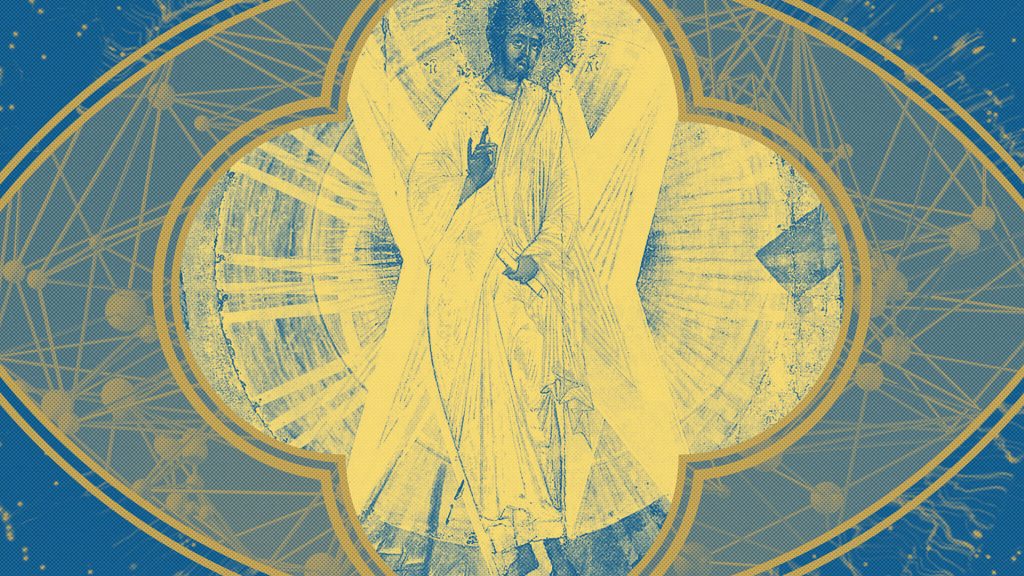Questions regarding the nature of consciousness loom large at the forefront of science. And popular culture. And within the faith community.
The common explanation for the origin of consciousness, an explanation that lacks empirical support, claims consciousness is an emergent property of the brain. In other words, our awareness emerges from chemical and physical processes within certain (as-yet-unidentified) brain structures.
In this version of consciousness, the mind is a collection of computations that arise out of material conditions. The mind, according to this view, is purely computational. This “popular wisdom” considers man is solely a biological entity operated by a “wet computer” brain.
It’s no surprise that this model generates considerable fear of Artificial Intelligence (AI). If brains—which, in this model, give rise to consciousness—are mere computers, what happens when AI amasses mega computational power?
With the proliferation of AI, will grave danger befall man as he becomes out-computed by machines? Will man—a wetware computing machine—be outperformed? Will the human species collapse in the AI jungle.
However, we need not worry. The “consciousness emerges from the brain” model is faulty. Evidence is lacking. Science cannot support the claim.
Consciousness is not constrained by material conditions, but rather transcends physical limitations. Our awareness is not an emergent property; rather, consciousness is a transcendent phenomenon.
One discipline has done more to cripple pop science views of consciousness than any other: near-death experience research. NDE studies have provided copious proof that consciousness operates separate from and at a distance from the body/brain.
NDE evidence supports an alternate worldview: humans, in essence, are immortal souls destined to enjoy “continuity of consciousness” beyond the mortal life of the flesh body. In this alternate model, consciousness is not an emergent property of brain activity, but rather transcends the body/brain.
Transcendent consciousness is consistent with religious and spiritual truths advanced throughout all of human history. It explains the afterlife. It stands opposite the materialistic, computational model.
In this second model, the brain operates as an energy switchboard that the soul accesses to run the body using mental energy. As Paul stresses in Romans, flesh is subordinate to spirit.
This transcendent worldview considers the mind to be a mental energy record. The soul’s interface with the physical accumulates as mind, or storehouse mind. The patterned energy images are impressions of energy interactions within the Mind of God.1 Consciousness records a movie of its experience in subtle energy that we call memories.
What about death? Are we certain that we do not “fade to black”?
In the first worldview, the materialistic view, the human, a purely biological object dissolves to dust upon death. Consciousness fades to black as the brain-computer (the postulated generator of consciousness) shuts down.
In the second worldview, the transcendent or spiritual worldview, upon body death, consciousness separates from the flesh body and enjoys an afterlife as a conscious immortal soul. The important concept in play is continuity of consciousness. Though the flesh body dies, the soul’s awareness, consciousness, continues.
Continuity of consciousness turns out to be a key property of a soul’s spiritual consciousness. Some might argue that this awareness, this observable reality, is the cornerstone of all religious belief.
Rather than the continuity of the soul being a function of illusion or delusion, continuity of consciousness is also the cornerstone of all science.
(All science is based on observation. Knowing precisely the nature of the observer is fundamental. Contemporary science, rather than religion, has strayed into illusion and delusion.)
In addition, the soul’s spiritual consciousness is capable of experiencing holy communion with divine consciousness. Mystical unity is one of the primary ways in which we come to know God. Profound mystical experience delivers total certainty of Divine Reality. We know God exists because we experience his existence, his sacred Being. This type of awareness infuses prayer with a divine quality.
The age-old clash between diametrically opposed worldviews, Materialism versus Idealism, comes into focus most deeply when we research the nature of consciousness. In the study of consciousness, the debate over the nature of reality reaches its pinnacle.
For this reason, the question “what is consciousness?” can be expected to remain a hot button topic, a source of heated discussion, for some time.
- For those so inclined, a study of Quantum Field Theory with fields consisting of consciousness may prove valuable. In other words, studying consciousness fields and the interactions of consciousness may shed light on how material conditions emerge from consciousness rather than vice versa. [↩]
